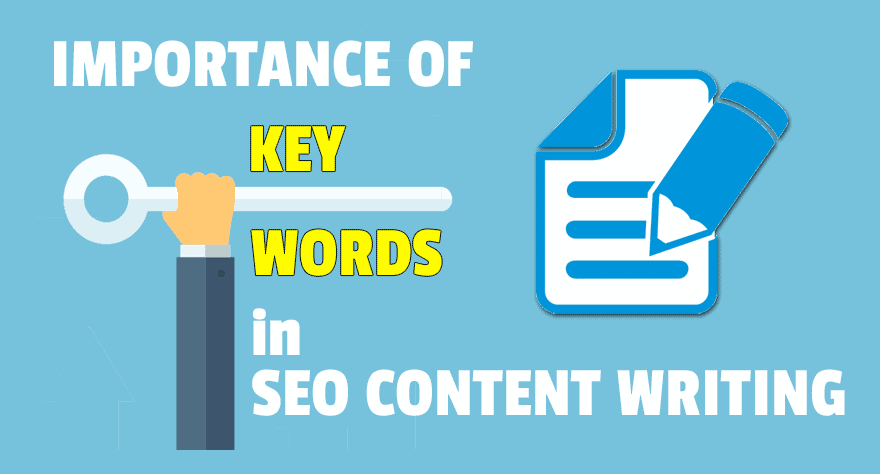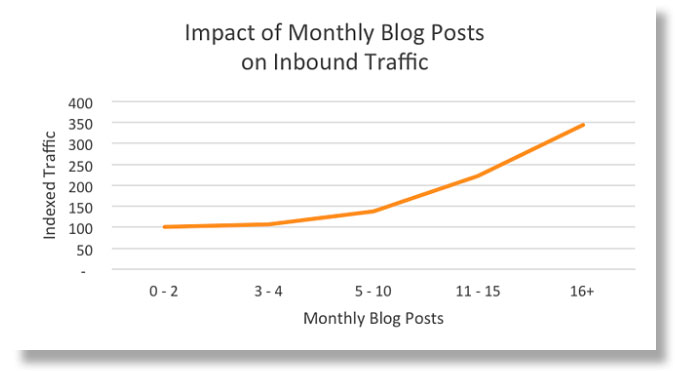
5 SEO improvements with content writing
Over the years I have developed some insights into the workings of SEO. I’m not an SEO expert but when people contact me for my content writing services, they mostly want to improve their search engine rankings.
Since I’m constantly trying to improve my rankings, whenever I have to implement non-content writing SEO features into my website, I do some reading, I develop an understanding, and then I implement the changes.
Nonetheless, on this blog, whenever I talk about SEO improvements and search engine optimization in general, I talk in terms of content writing – how to write and publish your content in such a manner that it improves your search engine rankings.
It gets you targeted traffic.
Why targeted traffic from search engines is very important

Targeted content writing
You don’t want traffic from search engines. You want targeted traffic. Traffic that converts.
I have seen entrepreneurs and individual businesspersons trying to generate traffic no matter what. This doesn’t help.
I often like to cite my own example.
I had a web design business website in the early 2000’s. I built most of its traffic through content writing for my own website and for other websites (which then linked back to my website).
The problem was that I filled my website with “tutorials”. Instead of attracting businesses who wanted someone to design their websites, I was attracting aspiring web designers who were looking for some good tutorials.
I was good at writing tutorials. They were educational and funny at the same time. People enjoyed my tutorials. But they didn’t give me work.
Initially I was happy that I was getting lots of traffic. But then, with every passing month, the number of assignments kept coming down.
Personally, for me, it was a blessing in disguise. Although web design, both design and programming, came easy to me, my soul was into writing. That was the reason why people enjoyed reading my tutorials.
Hence, in 2004, I wrapped up my web design business and started providing professional content writing and online copywriting services.
This time I didn’t commit the same mistake. Although I routinely published content on my website and blog, I focused on getting clients, B2B clients, rather than people who wanted to learn content writing and copywriting.
This entails knowing what your customers and clients are looking for and then writing and publishing content based on your findings.
With this out of the way, below I list 5 SEO improvements that you can implement through your content.
1. Write content catering to the searcher’s intent

Write content for searcher intent
I have written about searchers intent multiple times on my blog.
Whenever you use Google, whenever you search for something, we always have an intention. You don’t search for time pass.
When something is wrong with your mobile phone, you try to find out if someone else faced the similar problem, talked about it and found a solution, so that you can solve your problem.
When you’re working on a school assignment, you want to research about your topic. You are looking for information.
When you want to buy an appliance, you want to know which model or which brand is the best choice for you.
In the times of the Coronavirus outbreak, you want to know how fast it is spreading, where it has slowed down, what are the latest dos and don’ts during social distancing, and how to make sure that you and your loved ones don’t get infected. You search accordingly.
When you need quality content for your website or blog, you search for something like “content writer for my business” or “content writing service for my business”, or something similar.
Hence, there is always an intent.
Intent can be of the following nature:
- Navigational intent: Someone searching for “credible content” to find the URL of the website.
- Commercial intent: Something like “need a content writer for SEO”.
- Informational intent: Something like “can I improve my rankings with SEO content writing?”.
- Transactional intent: Something like “how much does quality content writing cost?”
You can write and publish content based on different intents.
Searcher’s intent for your industry may be different.
Do you need to target every intent? It depends.
Even if people are not buying from you right now, you need to increase your brand visibility. So, it is always better to target all intents: navigational, commercial, informational and transactional.
But, maintain a balance.
As I have explained above, when I was promoting my web design services, I was mostly targeting people – unintentionally – who themselves wanted to become web designers.
There is nothing wrong in targeting those people, but I shouldn’t have focused mainly on those people.
2. Compile a list of keywords for creating content writing titles

Importance of keywords in SEO content writing
Keywords are very important.
You may like to read Importance of keyword research before writing content.
Although there are many SEO experts who discount the role of keywords in your search engine rankings, I’m pretty sure even they secretly use keywords when producing content for their clients.
In terms of writing content, keywords are the search terms, or the search phrases people use trying to find information about your business.
There is no use targeting keywords with high competition. For example, if I want to optimize my website for “SEO content writer” it may be difficult because there are thousands of other people and businesses who are aiming for the same search term.
Instead, I may try to optimize for “SEO content writer for my web design agency” or “SEO content writing service for my dental implants clinic”, and such.
These are also called long-tail keywords. They are very precise. They may generate less traffic and they may be less competitive, but the traffic that they generate is more targeted and converts better.
Create a list of such keywords and come up with interesting and engaging (also informative) content topics.
You can use a service like Ubersuggest and Answer the Public to find the search terms you should be targeting through your content writing. For a very long time I have also used services like Serpstat and LongtailPro.
A good thing about a service like Ubersuggest is that it also shows you what topics the other websites are covering using the same keywords as yours.
Whatever service you use, the basic idea is to compile a list of topics based on your targeted traffic and then routinely start writing web pages and blog posts centered around those topics.
3. Use headings, subheadings and bulleted lists at every opportunity

Use headings and subheadings when writing content
On web pages, headings and subheadings means using HTML tags such as <h1>, <h2>… and so on. When you use your primary keywords within these tags, Google takes them very seriously. It assumes that since you have used your keywords or search terms within heading tags, they must be very important to you and for your content.
Just because Google takes text within these headings very seriously, it doesn’t mean you should overuse them.
On a web page or on a blog post, the <h1> tag should only be used once, preferably as the page header. If you use it multiple times, its importance begins to diminish.
What about the <h2> tag? Although you can use this tag multiple times on a web page, if you repeatedly use your keywords within this tag, even then it can send wrong signals to Google.
Remember that headline tags are for organizing your content under appropriate sections so that your content becomes scannable.
When working in MS Word you must have observed that you can expand and contract your sections under headings. This is so that it becomes easier for you to read long documents.
The same logic is applied when organizing content on long web pages and blog posts. The heading tags are for organizing ideas. If they happen to use your keywords, it’s icing on the cake, but don’t use them just for the sake of using them.
Bullet lists is another great place where you can use your keywords. When trying to make sense of your content, aside from the title and the headings, the Google algorithm also looks for important pieces of information in your bullets list section.
4. Don’t just use your primary keywords when writing content for your website or your blog

Use a diversity of keywords when writing content
When you are writing content for your website or your blog, whom are you writing the content for? You are writing for people.
Hence, you should focus on delivering value.
It is understandable that to improve your search engine rankings you want to use your keywords and search terms, but if you are creating content just to use your keywords, it doesn’t solve purpose.
The artificial intelligence used by Google’s ranking algorithms takes into account the way people interact with your content while deciding your rankings.
If people don’t positively interact with your content, your rankings begin to deteriorate.
Google takes notes of how much time people spend on your website (inferior quality content doesn’t hook people).
If people carry on the same search for which they found your link it means they didn’t find the information they were looking for on your web page or blog post and hence, your link shouldn’t have the rankings it currently has.
Therefore, it is very important that your focus remains on providing value and then within that focus, you adjust your primary, secondary and long-tail keywords.
5. Write content in mobile friendly format

Write mobile friendly content
By 2019, 42% people in the world used voice search in one way or another. By 2025 72.6% people will be accessing the Internet just on the mobile phone.
This means most of your customers and clients will be accessing your website from their mobile phones. They should be able to consume your content easily on their mobile phones.
What does writing content in mobile friendly format mean?
- Write shorter sentences.
- Use simple yet professional language.
- Avoid using multiple sentences in a single paragraph.
- Avoid using compound sentences.
- Make your content as scannable as possible.
Basically, people should be able to easily read your web pages and blog posts on their mobile phones.
Google has developed a technology to find whether your web pages and blog posts are mobile friendly or not and if they are not, it negatively impacts your search engine rankings.
SEO has majorly shifted towards your content these days. How you format your content and what value you deliver leave a big impact on your search engine rankings.
In fact, once you have taken the basic steps to optimize the structure of your website including, including correct information in the meta tags, all you have to do is, make sure that your content solves its true purpose.
When writing and publishing content, follow these guidelines and watch improving your search engine rankings right in front of your eyes.












